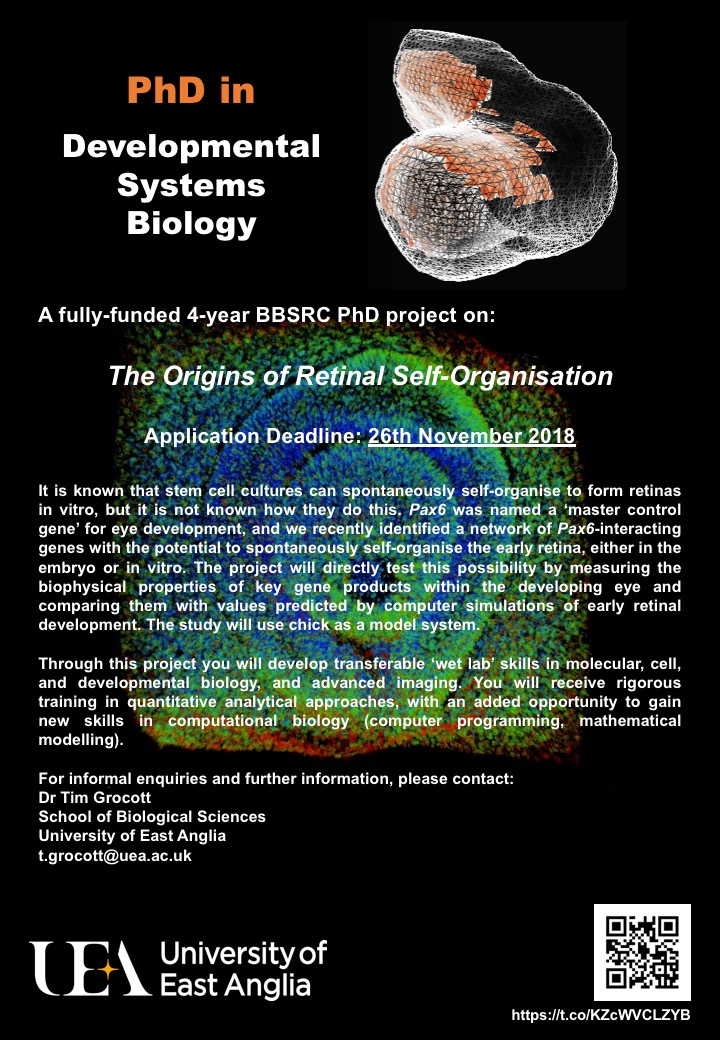PhD in Developmental Systems Biology – The Origins of Retinal Self-Organisation
Posted by TimGrocott, on 9 October 2018
Closing Date: 15 March 2021
A fully-funded 4-year BBSRC PhD project on
The Origins of Retinal Self-Organisation
Application Deadline: 26th November 2018
Location: School of Biological Sciences, University of East Anglia, Norwich, UK
Project Description:
There is much interest in the possibility of growing human organs from patient stem cells in vitro (a.k.a. ‘organoids’). In addition to regenerative therapies, this could furnish new disease models and facilitate drug development. By learning how tissues and organs self-organise in the embryo, we can rationally design strategies to improve and expand organoid technologies. Our research uses the chick embryo to investigate the development of our primary sense organ, the eye.
It is known that stem cell cultures can spontaneously self-organise to form retinas in vitro, but it is not know how they do this. This PhD project aims to investigate a Pax6 gene network that may drive self-organisation of the early retina. Pax6 was named a ‘master control gene’ for eye development, and we recently identified a network of Pax6-interacting genes with the potential to spontaneously self-organise the early retina, either in the embryo or in vitro. The project will directly test this possibility by measuring the biophysical properties of key gene products and comparing them with values predicted by computer simulations of early retinal development.
Through this project you will develop transferable ‘wet lab’ skills in molecular, cell, and developmental biology, and advanced imaging. You will receive rigorous training in quantitative analytical approaches, with an added opportunity to gain new skills in computational biology (computer programming, mathematical modelling).
For informal enquiries and further information, please contact: Dr Tim Grocott (t.grocott@uea.ac.uk)
To check eligibility and apply, please visit: https://t.co/KZcWVCLZYB



 (2 votes)
(2 votes)